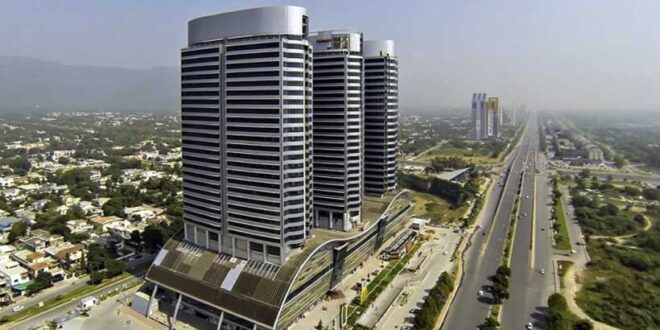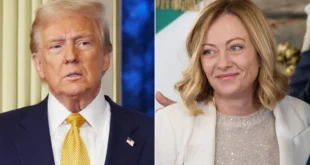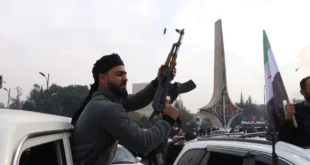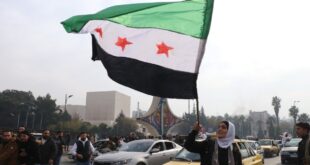Pakistan’s economy has remained the prey of political unrest. Despite its vast economic resources the country still faces severe economic stagnation due to the menace of political instability. An unstable political system is the hazard that halts smooth running of governance and enforcement of law and authority in a country. It is caused due to irregular political exchanges resulting into breakdown of policy implementation and feeble institutional structure, disobeying social behavior that affects or alters decision making parameters of the society. As a result, it badly affects economic activities and thus reduces economic development of the country. Therefore, Political stability is a must for a prosperous and progressive economy else the country shall doom into the darkness of economic recessions.
Research shows that the countries facing low economic growth are the victim of irregular flow of government exchange due to political unrest. It is evident that economic development was severely affected in those countries where government shuffles were unanticipated. Irregular change in government involves a critical change in ideology which negatively affects the implementation of policies and weakens institutional infrastructure.
In case of Pakistan the above argument fits well. Taking into account the tenures of Pakistani regimes from 1999 to 2022, it is obvious that due to political disparity the country’ economic growth remained low, corruption increased and unemployment and low production were witnessed. Starting from the 1999 when military regime ousted civil government in Pakistan, the country’s economy was growing at 4.2% rate and by the end of military regime in 2008 the economic growth stood at 1.7%. This decrease in economic development was caused by political tensions as, political stability index shows that political stability was -2.4% in 2008 compared to -1.1% in 2000. Similarly, during the tenure of PPP regime from 2008 to 2013 the country faced massive increase in corruption and low economic growth owing to surge in political instability which increased to -2.6% in 2013 compared to -2.4% in 2008. Moving further to the tenure of civil regime from 2013 to 2018 Pakistan’s economic progress faced drastic political unrest in the shape of demonstrations, rallies and protests by oppositions especially by Pakistan Tehreek Insaf. Due to PTI’s sit in Islamabad for 126 days country’s economy witnessed unprecedented losses because trade routes were, business activities were frozen which resulted a loss of Rs. 500-600 millions. Also foreign direct investment was affected during this tenure due to political turmoil. It was observed in 2014-15 that foreign Direct Investment was decreased due to unstable political situation incorporated by panama leaks and PTI’s continuous protests to throw out PML-N’s government. If we observe the tenure of 3.5 years of PTI government from 2018 to 2022 the political turmoil increased and from the very first day of Imran Khan’s regime the opposition political groups started protesting to disregard PTI government’s performance. For that PDM was formed which created challenging situation for PTI government to run the country with huge foreign debts, inflation, unemployment and inappropriate utilization of economic resources.
The country has faced various insubstantial exchange of power due to which a stagnant and poor economy remained the fate of the country. Governments in power implement short term policies for rapid results to sustain their rule which causes long term threats to the economy. Further, upon collapse of political governments the incumbent political groups terminate the policies of formers. Such instant change in political power created uncertainty in the country. Resultantly, large investment groups avoid investing their money just at the stake of indeterminate government policies which are seem to be short term with no future vision. Investment and political stability has direct relationship with each other. The more politically stable a country is, the more investment will come into the market. Due to political insecurity people does not invest their money which results into increased unemployment and lack of productivity in the country. In addition to this, political instability also created disharmony among the institutions in Pakistan. Consequently, the institutions failed to perform to their full potential. It further caused inappropriate handling of resources and poor planning.
Further, an obedient political behavior plays a vital role to establish a stable political system. It is a compliant attitude of individuals in a society towards the distribution of authority to make decisions about what laws should be made and how these laws to be enforced in the country. When the society is acquiescent to these laws, political stability prevails in the country which enhances consistent development in all aspects. Therefore, an obedient political behavior is necessary to sustain policy implementation and decision making in the state. In contrast a defiance political behavior of social groups influences decision making patterns in the country. Various social and political parties play the role of pressure groups in the country to alter decisions of governance in their particular interests due to which vast cost-effective economic policies are changed and general public’s interest is sacrificed. Indeed, such pressure groups are necessary in a democratic country but defying attitude towards governance authority negatively impacts the political stability in the country and destabilizes economic growth.
To conclude, political unrest badly impacts economic activities in the country and results into slow economic development. Therefore, stable political system must be established in the country. As political stability is the back bone of a country to run governance system smoothly. It plays a paramount role to sustain progress of the country. It is evident that political stability has direct and paramount effect on economic growth of a country. A firm political system strengthens efficient policy mechanism, institutional effectiveness and regular political exchange i.e. exchange of governments through regular elections or whatever the way of power exchange a country possesses.
 Geostrategic Media Political Commentary, Analysis, Security, Defense
Geostrategic Media Political Commentary, Analysis, Security, Defense





